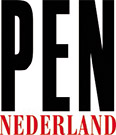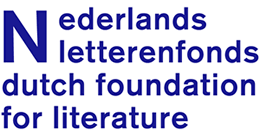Voormalig voorzitter PEN International overleden (+ aanvuling 10/11)
Vandaag bereikte ons het droevige bericht dat de Tsjechische auteur en diplomaat Jiri Grusa, van 2004 – 2009 voorzitter van PEN International, op 28 oktober op 72-jarige leeftijd is overleden.
Grusa werd door het communistisch regime in 1969 vervolgd voor zijn roman Mimner en in 1978 zelfs gearresteerd voor zijn roman The Questionnair. Van 1982 tot 1990 verbleef hij in West Duitsland, waarna hij naar Tsjechië terugkeerde, van 1991 tot 1997 was hij ambassadeur in Duitsland, vervolgens was hij enige tijd Minister van Onderwijs.
Huidig PEN International voorzitter John Ralston Saul herdenkt hem als volgt:
“The first shock of his death has now passed. Today I began to think about just how young Jiří was, and therefore how many words will not be written. All of us, I know, are also thinking of Jiří and Sabine; how close they were; how sad we must all be for Sabine.
When I heard the awful news my first thought was of how, as President, he was the perfect evocation of PEN. Here was the quintessential man of the word. And because of those words he was pursued, persecuted, arrested, jailed. His citizenship was stripped from him. He was driven into exile.And yet, when it was over and the political persecution had ended, he came home and simply set to work with his words – writing and serving the public good.
When we elected him as president, one of his first statements was that “freedom of expression is actually freedom from hatred”. He continually rose above that level at which bitterness for wrongs done may function; the sort of bitterness which clouds principles. And as International President, he immediately spoke up on behalf of “small literatures”, by which he meant “all indigenous literatures”.
There was, as we all experienced, a wonderful irony to Jiří’s view of the world. A constant humour. But it was a complex, literary humour in which irony could play a central role. That irony was part of the nobility with which he rose above short-term irritations and emotions.It is important to go back to his interpretation of what PEN was intended to be; what PEN continues to be. We matter as an international body after all these years precisely because we have always been an organization with clear purpose. Jiří saw PEN’s creation in 1921 as the establishment of “the first post-national literary society”. The result was a gathering together of writers who “extracted poetry from the miseries of nationalism”; who “foresaw that literature serves humanity”; who would work for “a true internationalism which fights for the non-violence of words, the maturity of thought”.
“PEN should be a place of inclusion, representing a philosophy of living. Whenever post-collectivistic, post-national ideas are needed, we will be in demand. But we must arrive in time.”
We must arrive in time! There are Jiří’s messages: a determined, stubborn attachment to ethics, to literature, to the public good, to non-violence no matter its personal cost, to reaching outwards in order to embrace the other.In so many ways he was also a symbol of the experiences of Central Europe in the 20th Century. Constant hope, periodic breakthroughs, heart breaking tragedies, time and again. And yet the determination, the persistence was there to build a fairer reality. And that determination could hold and succeed if people followed those broad ethical principles in which he believed. I remember his last speech as International President. He warned us against the return of populism – populism of the worst, old-style sort. In his calm and ironic way he was telling us to gird our loins for yet another struggle in which our strength is our words – the words we must find and use to deal with those who wish to manipulate power with fear and hatred; those who do not believe in the liberating effects of the imagination.
Jiří’s six years as president were years when PEN shifted to reinforce itself once again as the leading international body devoted to literature and freedom of expression. I know we will all miss his experience, his wisdom, his irony and his sense of ethical commitment and public equilibrium.
On behalf of Hori Takeaki, the Board, Laura McVeigh, all our members around the world and all of our staff, I send our condolences to Sabine and to the members of his PEN Centres. We will miss him.”





